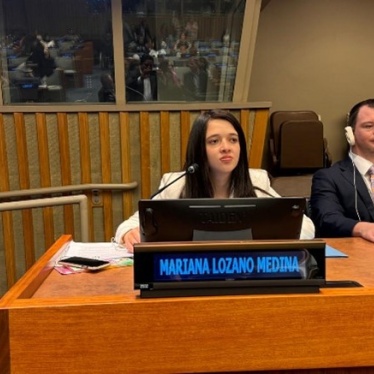After a hasty vote, Pro-Russia separatists in eastern Ukraine have announced a remarkable victory in a series of unofficial referendums held on Sunday, saying that the people have voted in favor of "self-rule". Ukraine, as well as the United States and Nato aren’t recognizing the vote - critics say the referendum had no international observers, no up-to-date electoral lists, and that the ballot papers were merely photocopies. The separatist leader of Donetsk, which “voted” to succeed from Ukraine announced that the province wanted to join Russia, but Russia has not officially recognized the vote.
In every conflict, information becomes part of warfare, and Ukraine is no exception. Each side creates its own narrative and comes up with casualty figures which at times have little to do with reality. "Killer robots" should never come to pass. A summit in Geneva opens today to debate the future of these weapons, which are programmed to choose targets without human intervention. A new HRW report, co-published with Harvard Law School’s International Human Rights Clinic, says these weapons pose such a danger they should be banned before they even come fully into existence.Islamist Group Boko Haram has released a video showing more than 100 of the kidnapped Nigeria schoolgirls. The leader of the militant group, Abubakar Shekau, said that he would release the girls in exchange for imprisoned militants, but Nigeria’s Interior Minister, Abba Moro, rejected the deal.
Chad’s president said he will close the border between Chad and its war-torn neighbor, Central African Republic, allowing through only Chadians. One of the rebel groups responsible for igniting the fighting in Central African Republic had members originally from Chad.
One of the most effective ways to deter sexual assaults is for police to investigate these cases seriously - and then for prosecutors to effectively prosecute them. Yet on university campuses serious responses to assault cases are all too rare.
On May 13, 2005, hundreds of largely peaceful protesters were killed by Uzbek government forces indiscriminately and without warning. No one has been held accountable for the killings, nor has the Uzbek government ceased its relentless persecution of people it suspects of having ties to the protest and of human rights activists and others critical of the government.








